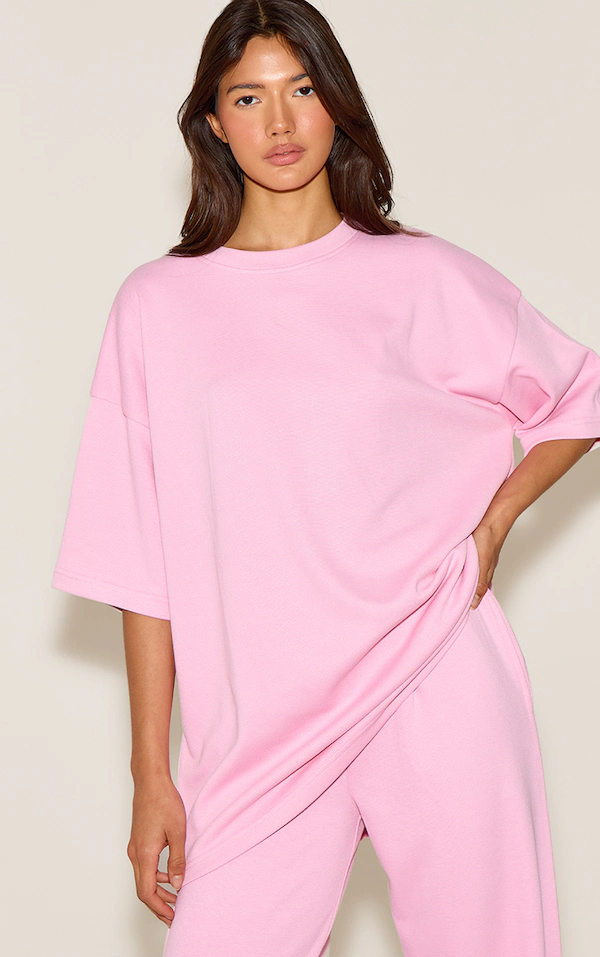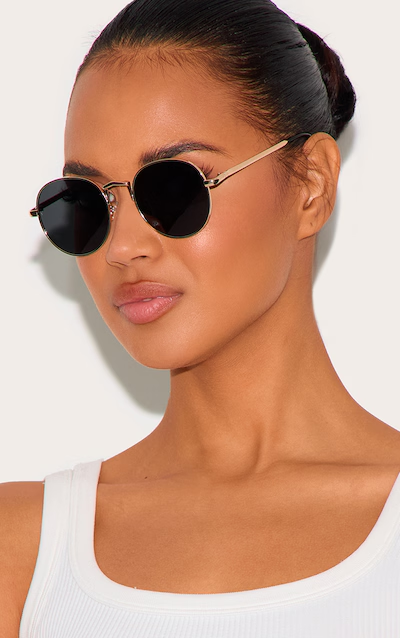Ubangi Skincare Product and Pretty Little Things Review: Effective Beauty Essentials for Radiant Skin
Ubangi skincare products are designed with a focus on natural ingredients and effective formulations tailored to diverse skin types. They emphasize nourishing the skin while addressing common concerns such as dryness, uneven tone, and sensitivity. Their approach combines tradition with innovation to deliver reliable skincare solutions.
Pretty Little Things, on the other hand, is a brand known for its stylish and affordable beauty accessories and enhancements that complement skincare routines. They offer trendy tools and items that help users maintain and elevate their beauty regimen without complicating it.
Together, these brands provide a balanced combination of care and style, making it easier to build an effective and enjoyable skincare routine. Combining the skincare benefits of Ubangi with the fashionable appeal of Pretty Little Things creates a well-rounded approach to personal care.


Overview of Ubangi Skincare Product
Ubangi skincare focuses on natural ingredients, clear brand values, and delivering targeted solutions for various skin types. The brand's audience and product assortment reflect these priorities, offering options suited for specific needs.
Origins and Brand Philosophy
Ubangi was founded to create effective skincare using predominantly natural and ethically sourced ingredients. The brand emphasizes transparency in its formulation process, avoiding harmful chemicals like parabens and sulfates.
Its philosophy centers on skin health and environmental responsibility. Ubangi agrees with sustainable sourcing and cruelty-free testing standards, appealing to consumers conscious of product impact beyond immediate skincare results.
The company integrates African botanical elements, aiming to highlight traditional remedies within modern skincare. This blend of heritage and science underpins the brand's identity and product development.
Target Audience
Ubangi primarily targets consumers aged 25 to 45 who seek clean, natural skincare with proven efficacy. Many users are urban professionals focused on hydration, anti-aging, and skin clarity.
The brand appeals to individuals with sensitive or combination skin types who require gentle yet effective solutions. It also attracts buyers who value sustainability and ethical product origins.
Marketing efforts are aimed at middle to upper-middle income brackets, emphasizing affordability without sacrificing quality. Reviews indicate a loyal customer base that appreciates consistent, visible results over time.
Product Range
The Ubangi lineup includes cleansers, serums, moisturizers, and masks formulated with ingredients like baobab oil, shea butter, and marula extract. These components target hydration, repair, and skin barrier support.
Key products include:
- Hydrating Facial Oil: Rich in antioxidants and fatty acids
- Gentle Foaming Cleanser: Sulfate-free, balances skin pH
- Rejuvenating Night Cream: Focuses on reducing fine lines
The brand excludes synthetic fragrances and dyes, catering to sensitive skin. Packaging is minimalist and recyclable, aligning with the company's eco-conscious stance.




Pretty Little Things: Brand Insights
Pretty Little Things is known for its dynamic presence in fashion, beauty, and lifestyle products. The brand's emergence, product diversity, and appeal combine to create a recognizable and influential name in the market.
History and Background
Pretty Little Things was founded in 2012 in the United Kingdom, initially focusing on fast fashion aimed at young adults. It quickly grew by leveraging social media marketing and influencer partnerships, making its products accessible worldwide.
The brand is a subsidiary of the Boohoo Group, which allows it to benefit from extensive distribution networks and rapid product turnover. Its background is rooted in responding to current trends quickly, maintaining relevance among a mostly millennial and Gen Z audience.
Product Categories
Pretty Little Things offers a wide range of products primarily across three main categories:
- Clothing: Dresses, tops, outerwear, and activewear tailored for casual and party wear.
- Beauty: Skincare, makeup, and grooming products that align with fashion trends.
- Accessories: Jewelry, bags, and shoes designed to complement outfits and style statements.
The brand often includes seasonal drops and collaborations with influencers, adding exclusivity to their product lines.
Brand Appeal
Pretty Little Things appeals to a young demographic focused on affordable fashion and beauty. Key factors in its appeal include trend-driven designs, competitive pricing, and strong social media engagement.
It also uses diverse marketing tactics featuring a wide range of models to reflect inclusivity. This strategy has helped maintain loyal customers who appreciate both variety and accessibility in products.



Key Ingredients in Ubangi Skincare Product
Ubangi skincare products combine thoughtfully selected components that target hydration, anti-aging, and skin barrier support. These ingredients are chosen for their effectiveness and compatibility with a wide range of skin types.
Natural and Organic Components
Ubangi prides itself on using natural and organic ingredients such as shea butter, baobab oil, and moringa seed extract. Shea butter provides intensive moisture and promotes skin softness. Baobab oil offers antioxidant benefits while improving elasticity.
Moringa seed extract is rich in vitamins A and C, supporting collagen production and skin rejuvenation. These natural elements help maintain a balanced, healthy complexion without harsh chemicals.
The product formula avoids synthetic fragrances and parabens, focusing instead on plant-derived actives that reduce irritation. This approach appeals especially to sensitive and environmentally conscious consumers.
Innovative Formulations
The brand incorporates advanced delivery technologies to enhance ingredient absorption. Their micro-encapsulation technique ensures stable release of vitamins and antioxidants deep within the skin layers.
Also, Ubangi uses bio-fermentation processes to improve the potency of botanical extracts. This increases the effectiveness of natural antimicrobials and anti-inflammatory compounds, resulting in better skin resilience.
These innovations allow for lightweight textures that feel non-greasy but deliver lasting hydration. The formulations are designed to optimize skin repair and protection throughout daily use.
Ingredient Sourcing
Ubangi emphasizes ethical and sustainable sourcing for all its raw materials. They collaborate with small-scale farmers and cooperatives in West Africa, ensuring fair trade practices.
Key ingredients like baobab and moringa are harvested through wildcrafting and organic farming methods. This minimizes environmental impact while supporting local communities economically.
The company also maintains strict quality control to guarantee purity and potency before ingredients enter production. Transparency in sourcing builds trust with consumers who prioritize sustainability and ethical standards.
Product Benefits and Efficacy
Ubangi Skincare Product and Pretty Little Things combine natural ingredients and scientific formulation to address common skin concerns. They focus on hydration, texture improvement, and gentle care for sensitive or acne-prone skin.
Skin Health Improvements
Ubangi products are formulated with hydrating agents like hyaluronic acid and natural oils to restore moisture balance. This helps reduce dryness and enhances skin elasticity. The inclusion of antioxidants such as vitamin E aids in protecting skin from environmental damage.
Pretty Little Things emphasize non-comedogenic ingredients to prevent clogged pores and irritation. Their formulas promote gentle exfoliation, which supports cell turnover without causing redness or dryness. Both brands prioritize ingredients that soothe inflammation and strengthen the skin barrier.
Visible Results and Testimonials
Users report smoother texture and improved radiance within 4 to 6 weeks of regular use of Ubangi products. Many note decreased redness and fewer breakouts over time. Testimonials highlight the lightweight feel and quick absorption, making them suitable for daily routines.
Pretty Little Things customers mention clearer skin and reduced irritation when switching from harsher products. Positive feedback often focuses on the calming effect and visible reduction in blemishes. Both product lines garner praise for noticeable improvements without harsh side effects.
Dermatologist Recommendations
Several dermatologists acknowledge Ubangi and Pretty Little Things for their balance of efficacy and mildness. They recommend these products for patients with sensitive skin or mild acne due to the absence of heavy fragrances and irritants.
Experts often advise incorporating their serums and moisturizers into existing skincare routines to boost hydration and skin resilience. The blend of clinically tested ingredients aligns with standard dermatological advice for maintaining skin health without over-drying.
Comparison Between Ubangi Skincare Product and Pretty Little Things
Ubangi and Pretty Little Things differ significantly in their approach to skincare. Their pricing and target skin types also reflect distinct priorities. These differences highlight what each brand offers to consumers based on their unique formulations and market positioning.
Differences in Skincare Philosophy
Ubangi emphasizes natural ingredients, promoting eco-friendly and clean beauty products. Their formulations focus on sustainability and avoiding synthetic additives. They prioritize skin health over quick cosmetic fixes.
Pretty Little Things, on the other hand, integrates trendy ingredients with vibrant packaging aimed at younger audiences. Their products often include synthetic compounds designed for immediate aesthetic results rather than long-term skin improvement.
Ubangi tends to research ingredient benefits deeply, favoring plant-based actives like shea butter and baobab oil. Pretty Little Things balances performance with market trends, using ingredients such as hyaluronic acid alongside affordable synthetic alternatives.
Price Point Analysis
Ubangi skincare products are priced in the mid to high range, reflecting their use of premium, natural ingredients and eco-conscious sourcing. Most items fall between $30 and $70 per product.
Pretty Little Things targets a budget-friendly segment, with prices typically ranging from $10 to $30. This makes their products accessible to a broader audience but may involve more cost-efficient ingredient choices.
| Brand | Price Range | Key Pricing Factor |
|---|---|---|
| Ubangi | $30 - $70 | Natural, sustainably sourced ingredients |
| Pretty Little Things | $10 - $30 | Trend-driven, synthetic additives |
Suitability for Different Skin Types
Ubangi products are formulated to suit sensitive and dry skin types, emphasizing gentle, nourishing ingredients. Their lines often target chronic skin concerns like eczema or irritation.
Pretty Little Things caters mainly to normal and combination skin, focusing on hydration and glow with lightweight textures. Their formulations may not be ideal for very sensitive or reactive skin due to some synthetic components.
Consumers with oily skin may find Pretty Little Things' non-comedogenic claims suitable but should patch test for tolerance. Ubangi's heavier creams may be better for dry or mature skin needing deep moisture.
How to Use Ubangi Skincare Product
Proper application and consistent care are essential for effective results with Ubangi skincare. Attention to detail in preparation and technique helps the product absorb fully and enhances its benefits.
Step-by-Step Application Guide
Start with a clean, dry face. Use a gentle cleanser and pat dry before applying Ubangi.
Take a small amount of the product—about a pea-sized drop—and warm it between the fingertips. This helps with even distribution.
Apply gently using upward, circular motions. Focus on problem areas, such as dark spots or uneven skin texture.
Allow the product to absorb fully before layering other treatments or makeup. This usually takes 2-3 minutes.
Use twice daily, morning and night, for best results. Avoid contact with eyes.
Best Practices for Maximum Results
Store the product in a cool, dry place, away from direct sunlight. Temperature fluctuations can reduce efficacy.
Consistency is key. Apply regularly without skipping to maintain skin improvement.
Avoid combining Ubangi with harsh exfoliants or abrasive treatments to prevent irritation.
Hydration through moisturizer after application is recommended to lock in benefits.
If skin sensitivity occurs, reduce usage frequency and consult a dermatologist.
Consumer Reviews and User Experiences
Consumers highlight several key aspects of Ubangi skincare products and Pretty Little Things items in their feedback. They often note notable benefits and specific issues that affect their satisfaction. These insights reveal practical strengths and limitations as reported by actual users.
Positive Feedback
Many users praise Ubangi skincare for its natural ingredients and visible improvements in skin hydration and texture. Several reviewers mention the lightweight feel and absence of irritation, which suits sensitive skin well. The scent, described as subtle and fresh, also receives positive comments.
For Pretty Little Things, customers appreciate the trendy design and affordability. The fit and fabric quality are frequently mentioned as meeting or exceeding expectations in this price range. Quick shipping and responsive customer service add to the favorable experience for many buyers.
Challenges and Criticisms
Some consumers report that Ubangi skincare products occasionally caused breakouts or did not deliver promised results, especially for acne-prone skin types. Packaging durability has also been questioned, with a few noting leakage during shipping.
Pretty Little Things faces criticism primarily about inconsistent sizing and fabric longevity. Several users say items shrink or lose shape after washing. There are also mentions of delayed deliveries and difficulty processing returns in certain regions, which impacts overall satisfaction.
Where to Buy Ubangi Skincare Product and Pretty Little Things
Ubangi skincare products and Pretty Little Things items can be purchased through specific official outlets and popular online platforms. Availability and authenticity are best ensured by focusing on these reliable sources.
Official Retail Channels
Ubangi skincare products are primarily sold through selected beauty boutiques and high-end department stores. These stores often carry exclusive selections, ensuring the product range is current, authentic, and properly stored.
Pretty Little Things offers its products in flagship stores located in major cities and approved department stores. Customers benefit from in-person service and the ability to inspect items before purchase. Some locations may also host limited-time pop-up shops for special collections.
Both brands recommend buying directly from authorized retailers to avoid counterfeit goods. Checking store authorization status on their official websites can confirm legitimacy.
Online Shopping Platforms
Online, Ubangi skincare and Pretty Little Things are available on their respective official websites, which provide the full product range and sometimes exclusive offers. These sites guarantee authenticity and proper customer service.
Additional platforms like Sephora and ASOS stock Ubangi skincare and Pretty Little Things, respectively, making them convenient options. These platforms often have user reviews, promotions, and flexible return policies.
For both brands, purchasing through reputable online marketplaces reduces risks related to fake products and limited customer service. Always verify seller ratings and product authenticity before buying.
Sustainability and Ethical Considerations
Ubangi Skincare Product and Pretty Little Things prioritize reducing environmental impact and supporting communities through specific practices. Their efforts focus on responsible packaging choices and meaningful social initiatives.
Eco-Friendly Packaging
Ubangi Skincare Product uses biodegradable materials for all primary packaging, including containers made from plant-based plastics. This reduces reliance on conventional plastics significantly.
The brand employs refillable options for select products, encouraging consumers to reuse containers instead of buying new ones. Labels are printed with soy-based inks, which are less harmful to the environment.
Pretty Little Things incorporates recycled paper and cardboard for shipping boxes and eliminates plastic fillers. Additionally, their inner packaging is designed to be minimal and recyclable, reducing waste volume.
Corporate Social Responsibility Initiatives
Both companies engage in fair trade sourcing, ensuring suppliers meet labor and environmental standards. Ubangi commits to purchasing raw materials from small-scale farmers who receive fair wages.
Pretty Little Things actively supports community education programs focused on environmental awareness and empowerment for women in production regions. They allocate a portion of profits to local charities.
They also conduct regular audits of their supply chains to maintain transparency and improve ethical compliance across all partners.
Future Trends in Skincare Products
Innovation continues to drive skincare, focusing on ingredient advancements and tailored user experiences. These shifts highlight how products evolve to meet specific skincare needs and preferences more effectively.
Emerging Ingredients
Skincare brands increasingly use botanical extracts, like baobab and marula oils, for their antioxidant properties. These ingredients support skin repair and hydration without harsh chemicals.
Peptides and probiotics gain traction for their ability to boost collagen production and balance the skin microbiome. Their inclusion aims to strengthen skin resilience and reduce inflammation.
Sustainable sourcing also influences ingredient choices. Companies opt for biodegradable components and natural preservatives to reduce environmental impact.
Personalization in Beauty
Personalized skincare relies on AI and diagnostic tools to tailor routines to individual skin types and concerns. Brands collect data through apps or devices, analyzing factors such as hydration levels, oil production, and sensitivity.
Custom formulations adjust active ingredient concentrations based on this data. This approach helps users avoid generic solutions and supports more effective treatment outcomes.
Subscription services often deliver these personalized products, enhancing convenience and engagement. This trend reflects a shift from mass-market to consumer-specific skincare solutions.